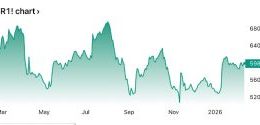Brussels – The European Parliament’s environment committee has greatly improved the proposed protection for forests in the draft EU law on deforestation-free products, but has left other threatened ecosystems like peatlands, savannahs and wetlands vulnerable, warned Greenpeace.
Members of the European Parliament voted to strengthen several elements of the European Commission’s proposed anti-deforestation law, which aims to keep products linked to forest destruction off the EU market, but left protection of other natural areas up to a review process that would take place in 2023.
Greenpeace EU forest campaign lead Sini Eräjää said: “Wetlands, savannahs and other ecosystems that support precious wildlife and help us fight climate breakdown are being destroyed right now, and every delay weakens them further. The evidence is clear that European consumption drives not only deforestation, but destruction of other nature too – we don’t need an EU Commission review to tell us that. This vote is a good start for forest protection, but more work must be done to make sure European consumption isn’t just shifting nature destruction a few hundred kilometres to a different ecosystem.”
The Parliament’s environment committee voted for more robust definitions of deforestation and forest degradation, and to strengthen the protection of human rights, especially the rights of Indigenous Peoples and local communities, which are often violated when ecosystems are destroyed. The recent murders of Dom Phillps and Bruno Pereira higlight the dangers that Indigenous Peoples and environmental defenders faces when resisting the destruction of nature.
The environment committee also voted to expand the list of commodities and products the law would apply to, adding rubber, maize and other livestock (pigs, sheep, goats and poultry) to the six commodities proposed by the Commission (palm oil, soy, coffee, cocoa, cattle and wood). The committee also backed expanding the due diligence requirements of the law to European financial institutions, whose investment portfolios would need to be vetted for links to projects and companies causing forest destruction.
In October 2020, the European Parliament voted in support of an EU anti-deforestation law that would immediately cover natural ecosystems other than forests. Savannahs, for example, are at great risk from soy and cattle production, two of the major commodities covered by the proposed law. More than half of the natural vegetation of the Brazilian Cerrado, home to both Indigenous communities and unique species like the jaguar, has already been cleared for soy plantations and pasture lands.
Next steps
The Parliament is expected to finalise its position in September, after which three-way negotiations on the final law will begin between the EU Commission, Parliament and national governments. In a meeting in June, European environment ministers backed changes to the proposed anti-deforestation law that would drastically weaken protections for forests.
Contacts:
Sini Eräjää, Greenpeace EU forest campaign lead: +32 476 975 960, [email protected]
Greenpeace EU press desk: +32 (0)2 274 1911, [email protected]
For breaking news and comment on EU affairs: www.twitter.com/GreenpeaceEU
Greenpeace is an independent global campaigning network that acts to change attitudes and behaviour, to protect and conserve the environment and to promote peace. We do not accept donations from governments, the EU, businesses or political parties. Greenpeace has over three million supporters, and 26 independent national and regional organisations with offices in more than 55 countries.
EU Transparency Register: 9832909575-41
Please select which cookies you are willing to store.
These cookies are needed for you to move around the website and access its features. Without these cookies you cannot access the services you may have requested.
These cookies help to improve the Greenpeace European Unit website. We set cookies to collect anonymous data on things like how long a visitor stays on a certain page, or which links they click. This helps us to make better content for a better world.
